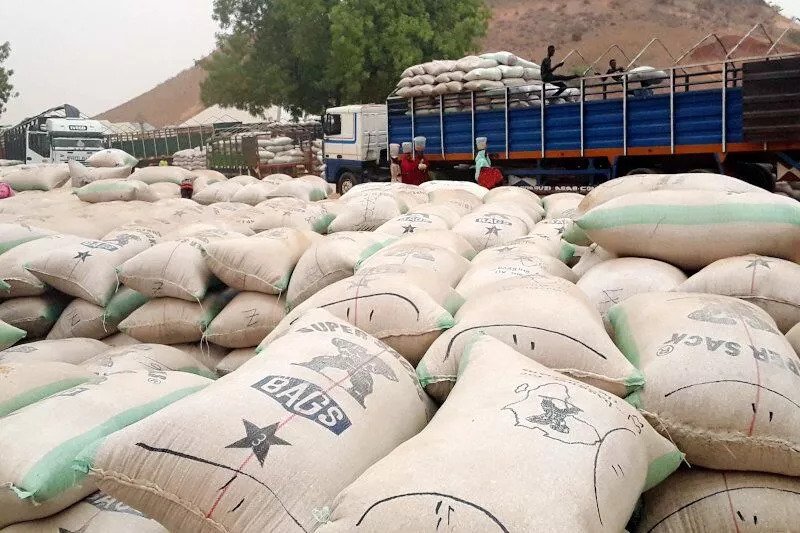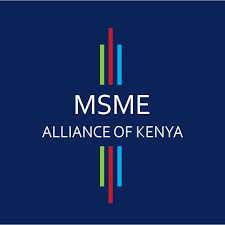As the new year begins, it’s a great time to think about new opportunities in Africa’s agribusiness and food industries. This list of nine potential ideas for 2023 is meant to stimulate initial thought and further investigation, rather than provide definite opportunities or comprehensive business plans.
1. Potential for local baby food production in Africa
The local production of baby food in Africa holds untapped potential, according to the International Trade Centre. Africa imports €570 million of food preparations for infants per year, a figure expected to exceed €1.1 billion by 2026. This presents a significant investment opportunity in Africa’s infant food value chain, where imports are 10 times higher than exports.
Entrepreneurs such as Seun Sangoleye, the founder of Baby Grubz in Nigeria, and Pascaline Nenda, the founder of Lemana in Cameroon, are already taking advantage of this opportunity by using locally-sourced ingredients to produce high-quality baby food. However, expansion has been hindered by infrastructural challenges such as difficulty transporting products and power shortages, as well as issues with funding. Despite these hurdles, both entrepreneurs remain optimistic about the future of their companies and the potential for innovation and growth within the local production of baby food in Africa.
2. Climate change adaptation opportunities worth up to $100 billion
The private sector has a crucial role to play in helping Africa adapt to the increasing frequency and severity of natural disasters, such as floods and droughts, according to a new study by the International Finance Corporation. The study estimates that there are up to $100 billion in total potential upfront adaptation investment opportunities, or $5 billion a year, in Africa between now and 2040.
Some examples of these adaptation investments include solar-powered crop irrigation systems to prevent harvests being destroyed by droughts, and crop insurance to guarantee farmers a livable income if yields significantly drop due to a weather-related event. With African governments’ budgets stretched and little fiscal space, public investment will not be sufficient to meet the continent’s climate adaptation needs, making private sector investment essential. (Read more: Climate adaptation in Africa offers investment opportunities for private sector)
3. West Africa’s pineapple industry
The pineapple industry in West Africa presents significant business opportunities, as there is increasing demand for fresh pineapples and related products in both regional and international markets. Nigeria is the largest producer in the region, followed by Ghana, Benin, Côte d’Ivoire, and Togo. In 2019, West Africa earned approximately $66.9 million from fresh pineapple exports to the European Union. While the variety MD2, known for its long shelf life, is the most popular for export, traditional varieties such as the Pain de Sucre (Sugarloaf) have regained popularity in local and regional markets.
One example of a successful business in this industry is Jus Délice in Togo, which produces pure organic pineapple juice and supplies it in bulk to European clients, from where it goes to individual juice brands. (Read more: Exporting pineapple juice from West Africa to Europe)
However, the industry also faces several challenges. These include a shortage of year-round fresh product supply, high production costs and low productivity. There is also a lack of well-organised cooperatives, limited access to loans, and patchy market information. In addition, there is inadequate infrastructure, such as processing and packaging equipment, refrigerated storage, and transportation.
4. Zambia’s growing market for processed food products
The local production of processed food items that are currently imported presents attractive opportunities in Zambia, according to Tue Nyboe Andersen, managing director of Lusaka-based Kukula Capital. “For processed food products, I think the opportunities really lie in niche products with limited competition. As a landlocked country, Zambia has some built-in import barriers; imported products need to be transported over long distances. For example, there is a company called Meraki that produces cakes and supplies them to big retailers like Shoprite. It has grown rapidly with decent margins because its competition is imported products that are way more expensive. Zambia has limited food processing and a lot of items are imported.”
Andersen explains the addressable market for food products is not only in Zambia, but also the Katanga region in neighbouring Democratic Republic of the Congo (DRC). Zambia largely supplies food to the whole of southern DRC because there are very few commercial farmers in the area. The market is Zambia’s 18 million people as well as the Katanga region, which brings the total closer to 30 million. (Read more: Zambia-based investor highlights promising business opportunities)
5. Solving transportation and storage challenges
There are numerous gaps for providing transport and logistics solutions to Africa’s agribusiness and food industries. In Rwanda, for example, there is a shortage of commercial refrigerated vehicles, presenting a potential business opportunity for entrepreneurs, according to Mark Sproston, CEO of food distribution company GET IT. In Zimbabwe, Mobility for Africa’s low-cost electric tricycles cater to the transportation needs of small-scale farmers, while Rwandan company OX Delivers operates a fleet of off-road electric vehicles that customers can book space on to transport goods across rural areas.
There is also high demand for cold storage and warehousing solutions in sub-Saharan Africa, where the UN’s Food and Agricultural Organisation estimates that over 40% of food perishes before it reaches consumers. In response to this, African Infrastructure Investment Managers (AIIM) recently established Commercial Cold Holdings, which plans to grow into a pan-African cold chain logistics platform with a network of temperature-controlled warehouses in key demand hubs and food production regions.
There are also a number of companies in Africa that provide cold storage solutions for small businesses, farmers and market merchants. For instance, Koolboks, a Nigerian company founded in 2018, offers off-grid solar-powered units that can be used as refrigerators or freezers and can stay cool for up to four days without power or sunlight. Koolboks has integrated pay-as-you-go technology to make the units more affordable. Another Nigerian company, ColdHubs, operates solar-powered cold rooms, providing a pay-as-you-store service for fresh produce to smallholder farmers and market merchants. Each unit can hold three tonnes of food and customers pay 200 Nigerian naira (about $0.50) to store fresh produce in a 20kg crate for one day.
6. Rethinking the traditional fruit and veg market
Informal markets in Zambia, where the majority of fresh fruit and vegetables are sold, have few food safety measures and lack cold storage facilities, leading to food spoilage and losses for farmers. These farmers also have little visibility into the prices their produce is being sold for and have no information on how much goes to waste.
Savenda Capital has identified this inefficient and unfair system as a business opportunity and is establishing a modern, purpose-built fresh produce market in Lusaka called ZAMBIAFresh. The market will feature cold storage and ripening rooms, implement strict food handling and hygiene standards, and use a trading software system to offer fair prices to both buyers and sellers. ZAMBIAFresh will earn a commission on each sale and incentivise farmers to sell through the market with its lower and more transparent commission structure and access to cold storage. The market is expected to commence trading in 2023 and Savenda Capital plans to expand the model to other countries in sub-Saharan Africa. (Read more: Rethinking the traditional open-air fruit and veg market)
7. Digital disruption in Africa’s agricultural sector
Agtech is a promising opportunity in Africa, according to Brian Waswani Odhiambo, a partner at venture capital firm Novastar Ventures. Some examples of agtech solutions include Zowasel, a digital marketplace linking small-scale farmers to buyers in Nigeria; iProcure, a Kenyan platform joining manufacturers of agricultural inputs to local agro-dealers who supply small-scale farmers; and Trotro Tractor, an Uber-like service connecting farmers to tractors in Ghana, Nigeria, Togo, Benin, Zambia and Zimbabwe. The platform, which currently has 65,000 farmers and 3,200 tractors, allows farmers to request a tractor within 72 hours or book in advance for a specific date, and tractor owners pay a fee to be on the platform.
8. Rwanda has competitive advantages for horticultural exports
There is potential to boost exports of Rwanda’s horticultural products such as mushrooms, passion fruit, and chillies. According to a study by Manufacturing Africa, demand for imported mushrooms is strong in the European Union (EU) and the Middle East, with the EU importing approximately 323,000 tonnes per year valued at $699 million and the Middle East importing 18,500 tonnes valued at $100 million. Rwanda is well positioned to produce and export specialty mushrooms, such as shiitake, to these markets due to its ideal agronomic conditions and competitive labour market. Exporting fresh shiitake mushrooms to the EU can earn a gross profit margin of 18% at a wholesale price of $12,000/tonne, while dried shiitake mushrooms can earn a gross profit margin of 18% at a wholesale price of $21,000/tonne.
In addition to mushrooms, Rwanda also has potential to export passion fruit and chillies to the EU, with demand for passion fruit in the EU estimated at 375,300 tonnes per year valued at $861 million and demand for chillies in the EU estimated at 1.5 million tonnes per year valued at $2.7 billion. Rwanda’s competitive advantages in horticultural exports include its climatic conditions, horticulture being a strategic sector for the government with incentives available, a competitive labour market, access to daily flights to Europe and the Middle East, and improving infrastructure.
9. Fonio: An overlooked West African superfood
Fonio is a gluten-free grain that has been cultivated in West Africa for thousands of years. It is drought-resistant, can grow without fertilisers, and improves the fertility of fallow soil. Despite its long history, it is not widely commercialised. However, demand for fonio has been growing in the US and EU due to its nutritional value.
US-based food company Yolélé has taken advantage of this need by selling fonio sourced from smallholder farmers in West Africa at over 2,000 outlets in the US, including Whole Foods and Target. In addition, Yolélé has signed an agreement with Mali Shi, an agribusiness company in Mali, to establish a new venture called West African Ancient Grains, which will process thousands of tonnes of fonio in Mali. Ghanaian company AMAATI Group has also recognised the potential of fonio and contracts smallholder farmers to grow it on abandoned farmland in northern Ghana. AMAATI’s branded fonio products, called DIM Fonio, are sold in over 190 outlets in Ghana and are exported to Italy, the Netherlands, France, the US and Canada.












